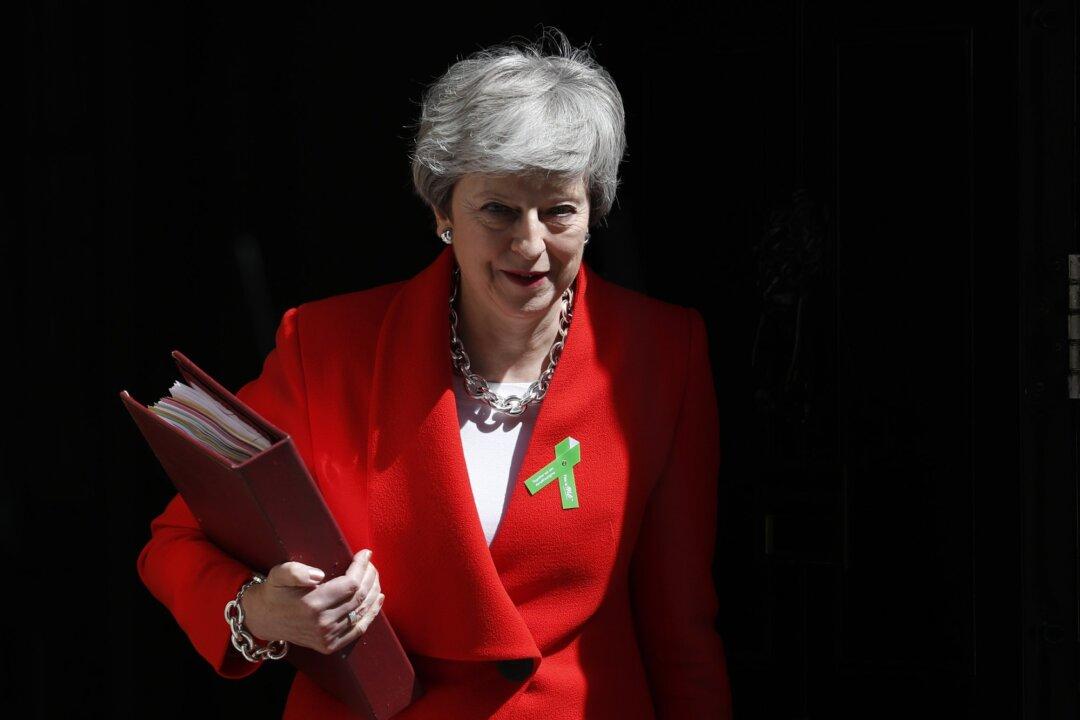LONDON—British Prime Minister Theresa May said on Friday she would quit, triggering a contest that will bring a new leader to power who is likely to push for a more decisive Brexit divorce deal.
May set out a timetable for her departure—she will resign as Conservative Party leader on June 7 with a leadership contest beginning the following week.





